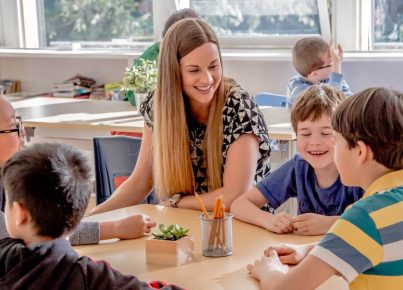Introduction:
The new school year has begun, and teachers are navigating the challenges of educating students in an unpredictable environment. Parents can play a vital role in supporting their children’s education by engaging in productive activities with them at home. Here are five things parents can practice with their kids that will not only benefit students but also provide a helping hand to teachers.
1. Work on Time Management & Organization Skills
Help your child create a schedule for their daily routine, including time for homework, extracurricular activities, and relaxation. Teach them about setting priorities and breaking tasks into smaller steps to improve focus and efficiency. Developing good time management and organizational habits will equip your child with essential life skills and lessen the burden on teachers.
2. Encourage Reading & Comprehension
Make reading fun and engaging for your child by exploring various genres and formats such as graphic novels, e-books, or audiobooks. Help them develop good comprehension skills by asking questions about the text or discussing key themes together. Fostering a love for reading improves vocabulary, enhances critical thinking abilities, and supports success in all areas of learning.
3. Practice Effective Communication
Effective communication is critical to navigating the world around us, and parents can play an essential role in developing their children’s communication skills at home. Encourage face-to-face conversations, share opinions respectfully, and cultivate empathy within interactions. By fostering effective communication skills, you’ll not only promote healthy relationships but also make it easier for teachers to connect with your child in the classroom.
4. Strengthen Problem-Solving Skills
Use real-life situations as opportunities to help your children learn how to think critically and solve problems independently or collaboratively. Engage in games that challenge their thinking or present hypothetical scenarios that require critical thinking and decision-making skills. By practicing problem-solving techniques at home, parents can contribute to the development of their child’s resilience and resourcefulness in the classroom.
5. Promote Social-Emotional Learning
Social-emotional learning plays an indispensable role in a child’s cognitive and behavioral development. Support your child in understanding and managing their emotions, developing empathy, and engaging with peers. Collaborate with your child’s teacher to identify areas needing attention and apply strategies that foster social-emotional growth.
Conclusion:
By taking an active role in your child’s education at home, parents can create a strong foundation for academic success and ease the load on teachers this school year. Following these five practices will not only contribute to your child’s overall well-being but will also strengthen the collaborative bond between home and school, enhancing the educational experience for all.




